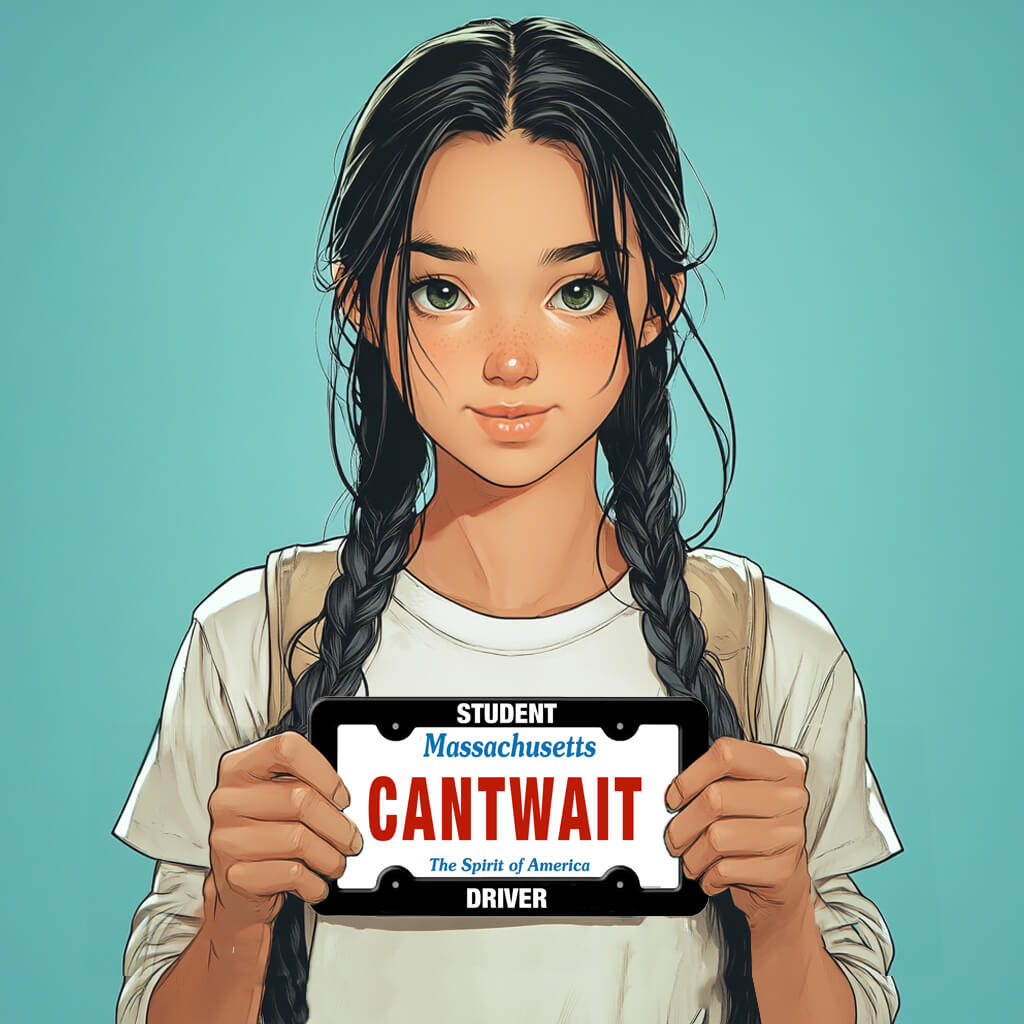By Sarafina Zhang — CCHS Correspondent
In today’s fast-paced world, the decision to learn to drive isn’t just about getting from point A to point B.
Whether driven by a desire for independence, a necessity for work or school, or simply the thrill of hitting the road, teenagers across Concord are navigating their own paths when it comes to taking Driver Education.

For some, the allure of independence and freedom prevails. Jolie Thorsen, a rising junior enrolled in Driver Education, shares her reasons for learning to drive: “being independent, getting the freedom to go where I want to and when [and] getting to see my friends more often.”
Others approach the idea of driving with caution or reluctance. Hanna Xue, a teen who has deferred Driver Ed, explains, “I’d rather not stress about it right now. I’m scared of driving and would rather have my parents drive me.” Still, knowing the importance of learning to drive, she admits, “I’ll have to [learn] later.”
Meanwhile, Sophie Hong, a 16-year-old student who just took Driver Education but is apprehensive about actually driving, reflects on her fears: “I’m scared I’m going to crash and die. I feel like I’m not ready or mentally prepared.” Despite these concerns, “I’ll be left behind if I don’t take it,” she says. “I feel like it’d be useful in college.”
Their perspectives underscore the complex blend of personal anxiety and pragmatism that impact students’ choices about getting into the driver’s seat.
Rules of the road
Students must be at least 15 years and nine months old to start classroom Driver Education with Concord Carlisle Adult & Community Education. The course involves 30 hours of classroom study and 12 hours of behind-the-wheel training, plus other instruction, including a parent/guardian class.
CCACE Instructor Rebecca Gurley says it’s “easier to teach a teenager than an adult. Teens are a blank slate and will listen and change behaviors in the Driver Education car better than adults.”
Still, “Learning to drive is a journey, and we are all wired differently, with different strengths. There should never be a race to get your license,” she says.
“Some students are over-committed to other activities, some have a friend with a license, and some the parents were fulfilling the chauffeur role,” Gurley continues. “We also see students who have anxiety, neurodivergence, and social-emotional struggles.”
Driving forces
Personal schedules, peer influences, and underlying challenges all play roles in choices about learning to drive, so Gurley emphasizes the importance of understanding each teenager’s motivations and worries.

“No matter the situation, never push your child to drive,” she advises.
“Find out why they would rather not get a license. If they have a mental health issue, you need to know. They may plan to live their whole life in a city and don’t think they need it,” Gurley says.
“I think driving is a skill worth learning, and reluctant students can be swayed by that argument. Be patient.”
In Concord, the motivations behind learning to drive vary widely among teens. Whether moved by a thirst for independence or an undercurrent of fear, each student’s path toward obtaining a driver’s license reflects a unique combination of personal feelings and societal norms.
As students weigh their options, the road ahead offers both challenges and opportunities for self-discovery as they take on what may be their first real adult responsibility.






